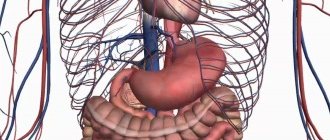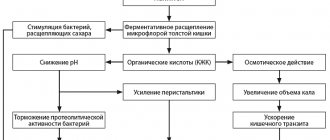Write a review
Reviews: 0
Manufacturers: Schering AG, PL
Active ingredients
- Levonorgestrel
Disease class
- Monitoring contraceptive use
Clinical and pharmacological group
- Not indicated. See instructions
Pharmacological action
- Contraceptive
- Progestin
Pharmacological group
- Estrogens, gestagens; their homologues and antagonists
pharmachologic effect
Contraceptive. Microlut is a progestin, low-dose medication that is used to prevent pregnancy. Daily, regular use of levonorgestrel provides reliable contraceptive action, which is achieved through the complex influence of several mechanisms at once. The leading role is given to the peripheral gestagenic effect. The active substance can increase the viscosity of mucus, which is located in the cervix (cervical/cervical mucus), which prevents sperm from entering the uterine cavity. The active substance is capable of inhibiting endometrial proliferation , which prevents the fertilized egg from implanting to the uterine wall.
Microlute is able to block the release of follicle-stimulating and luteinizing releasing factors of the hypothalamus . While taking the medication, there is a suppression of the production of pituitary gonadotropic hormones, which in turn inhibits the ovulation process. With regular use, the volume of menstrual bleeding noticeably decreases and menstrual pain (including premenstrual pain) is eliminated.
Contraindications
- neoplasms in the hepatic system;
- vaginal, uterine bleeding of unknown origin;
- sickle cell anemia;
- diabetes mellitus with various vascular complications;
- thromboembolic processes;
- herpetic infection;
- hemolytic anemia;
- history of stroke
- malignant neoplasms of the mammary gland, suspicion of them;
- individual hypersensitivity;
- hormone-dependent endometrial/breast cancer;
- period of gestation.
Relative contraindications:
- history of ectopic pregnancy
- pathology of the renal system;
- violation of the patency of the fallopian tubes;
- diabetes mellitus without complications;
- epilepsy;
- migraine;
- tuberculosis.
Exluton®
Prevention of ectopic (ectopic) pregnancy with traditional progestogen-containing OCs (“mini-pills”) is not as effective as when using COCs, since ovulation occurs in some women when using the “mini-pill”. Additional risk factors for ectopic pregnancy include a history of ectopic pregnancy and tubal disease from infection or surgery. If pregnancy occurs when using Exluton®, it is necessary to exclude ectopic pregnancy. In addition, when carrying out differential diagnosis in the case of amenorrhea and abdominal pain, ectopic pregnancy should also be excluded.
Medical examinations/consultations
Before prescribing the drug, you should carefully review the woman’s medical history and conduct a gynecological examination to exclude pregnancy.
Before prescribing the drug, the cause of menstrual irregularities, for example, oligomenorrhea and amenorrhea, should be established. The interval between control medical examinations is determined in each individual case, but at least once every 0.5 years. If the prescribed drug may affect a latent or existing disease, an appropriate schedule of follow-up medical examinations should be drawn up. Despite regular use of Exluton®, irregular bleeding may sometimes occur. If bleeding is very frequent and irregular, you should consider using another method of contraception.
If the above symptoms are persistent, then in this case it is necessary to exclude their organic cause. Tactics in relation to amenorrhea during use of the drug depend on whether the tablets were taken in accordance with the instructions and in some cases pregnancy tests should be included in the study. If pregnancy occurs, the drug should be discontinued.
Women should be informed that Exluton® does not protect against HIV infections (AIDS) and other sexually transmitted diseases.
Reduced efficiency
The effectiveness of progestogen-containing OCs may be reduced if pills are missed, gastrointestinal disorders, or other medications are taken.
Changes in the nature of menstruation
While using progestogen-containing contraceptives, some women may experience vaginal bleeding more frequently or for a longer period of time, while for other women the bleeding may become less frequent or stop altogether.
These changes are often the reason that a woman refuses this method of contraception, or ceases to strictly follow the doctor's instructions. In this case, it is necessary to consult a doctor for further clarification about the effect of the drug. It is also possible to undergo an examination to exclude malignant neoplasms or pregnancy.
Follicle development
When taking estrogen-containing combined hormonal contraceptives, follicles develop, and occasionally the follicle size can reach larger than normal sizes. Typically, enlarged follicles disappear spontaneously and asymptomatically; in some cases there is mild pain in the lower abdomen; in rare cases, surgical intervention is possible.
Lab tests
Data obtained with COCs have shown that the use of contraceptive steroids may affect the results of some laboratory tests, including biochemical parameters of liver, thyroid, adrenal and renal function, plasma levels of transport proteins, such as corticosteroid binding globulin, on lipid/lipoprotein fractions, indicators of carbohydrate metabolism, blood clotting and fibrinolysis. Usually these changes remain within normal limits. It is unknown to what extent this also applies to progestogen-only contraceptives.
Side effects
- engorgement of the mammary glands;
- menstrual irregularities ( amenorrhea , irregular/frequent bleeding);
- allergic responses;
- depressed mood;
- nausea;
- skin changes ( hirsutism , acne );
- dizziness;
- vomit;
- deterioration of tolerance to contact lenses;
- change in vaginal secretion;
- decreased libido ;
- headache;
- change in body weight;
- diarrhea.
Dragee Microlut
Instructions for medical use of the drug
Description of pharmacological action
Increases the viscosity of cervical mucus, which prevents the penetration of sperm into the uterine cavity, blocks the release of releasing factors (luteinizing and follicle-stimulating) of the hypothalamus, inhibits the secretion of gonadotropic hormones by the pituitary gland, and thus inhibits ovulation; prevents endometrial proliferation, reduces the volume of menstrual bleeding, eliminates pre- and menstrual pain.
Indications for use
Prevention of unwanted pregnancy, incl. as an additional remedy for women using non-hormonal methods of contraception, as well as in the presence of contraindications to the use or poor tolerance of gestagen-estrogenic drugs.
Release form
dragee 0.03 mg; blister 35, box (box) 1;
Pharmacodynamics
Increases the viscosity of cervical mucus, which prevents the penetration of sperm into the uterine cavity, blocks the release of releasing factors (luteinizing and follicle-stimulating) of the hypothalamus, inhibits the secretion of gonadotropic hormones by the pituitary gland, and thus inhibits ovulation; prevents endometrial proliferation, reduces the volume of menstrual bleeding, eliminates pre- and menstrual pain.
Use during pregnancy
Contraindicated during pregnancy. Can be used during breastfeeding (due to the low dose of the hormonal agent, it is practically not excreted in breast milk).
Contraindications for use
Hypersensitivity, pregnancy, severe liver dysfunction, liver tumors and thromboembolic processes (including a history), diabetes mellitus with vascular complications, hormone-dependent breast or endometrial cancer, vaginal bleeding of unknown etiology.
Side effects
In some cases - menstrual irregularities (frequent and/or irregular bleeding, amenorrhea), breast engorgement, headache, dizziness, nausea, vomiting, diarrhea, skin lesions (including acne and hirsutism), changes in body weight and libido, depressive states, changes in vaginal secretion, deterioration in tolerance to contact lenses, allergic reactions.
Directions for use and doses
Orally, without chewing, with a small amount of liquid. 1 tablet daily, at the same time, starting from the 1st day of menstruation (using the tablet of the corresponding day of the week from the calendar package). After completing the intake of Microlut from the first package, the next day it is continued from a new package, starting with the tablet of the corresponding day of the week.
Interactions with other drugs
Rifampicin, griseofulvin, ampicillin, tetracycline, primidone, phenytoin and barbiturates reduce the effect of levonorgestrel.
Special instructions for use
If the expected menstruation does not occur while taking the drug, pregnancy must be excluded. In case of prolonged and persistent intermenstrual bleeding, additional examination is necessary to clarify the diagnosis.
Storage conditions
List B: Under normal conditions.
Best before date
60 months
ATX classification:
G Genitourinary system and sex hormones
G03 Sex hormones and modulators of the reproductive system
G03A Systemic hormonal contraceptives
G03AC Progestogens
G03AC03 Levonorgestrel
Interaction
Medicines that can reduce the effectiveness of Microlute:
- Lamotrigine;
- Phenobarbital and other barbiturates ;
- Primidon;
- Rifampicin;
- Phenytoin.
The risk of intermenstrual bleeding increases when taking the following drugs:
- Chloramphenicol;
- Nitrofurantoin;
- Sulfamethoxypyridazine;
- Phenoxymethylpenicillin;
- Ampicillin.
The active component Levonorgestrel can reduce the effectiveness of:
- anticonvulsants;
- antihypertensive medications;
- oral anticoagulants.
It is recommended to adjust the doses of insulin and hypoglycemic drugs during treatment with Microlut. The medication promotes the accumulation of Diazepam and Chlordiazepoxide .
special instructions
Before taking contraceptives, a gynecological and partial therapeutic examination is recommended, and examination of the mammary glands is mandatory. A doctor's examination and all examinations must be completed every six months. In some patients taking the medication, the interval between menstruation and the intensity of menstrual bleeding change; The menstrual cycle itself does not change. If there is no intermenstrual bleeding for more than 6 months, you should contact your doctor to rule out pregnancy. Treatment is continued if pregnancy is not confirmed.
Keeping a special calendar, which is attached to the medication, makes it easier to track the frequency of menstruation. In the first 14 days of therapy, contraception is incomplete, so it is necessary to resort to non-hormonal, barrier methods of preventing pregnancy.
The contraceptive effect is lost if the interval between taking pills is more than a day. With diarrhea , vomiting, overweight, obesity, the contraceptive effect is lost. In the event of a sudden deterioration in auditory or visual perception, prolonged migraine, pregnancy, increased frequency of seizures , suspected thrombosis or thromboembolism , a sharp rise in blood pressure, or the appearance of jaundice the medication is discontinued. After discontinuation of the drug, the functionality of the gonads is restored quickly enough, which increases the chances of pregnancy.
Similar drugs:
- Diane-35 (Diane-35) Dragee
- Duphaston Oral tablets
- Androcur Oral tablets
- Mirena Intrauterine therapeutic system
- Levonorgestrel Substance-powder
- Primolut-Nor Aerosol
- Depo-Provera Suspension for injection
- Escapelle Oral tablets
- Megace Oral tablets
- Depostat Aerosol
** The Drug Directory is intended for informational purposes only. For more complete information, please refer to the manufacturer's instructions. Do not self-medicate; Before starting to use the drug Microlut, you should consult a doctor. EUROLAB is not responsible for the consequences caused by the use of information posted on the portal. Any information on the site does not replace medical advice and cannot serve as a guarantee of the positive effect of the drug.
Are you interested in the drug Microlut? Do you want to know more detailed information or do you need a doctor's examination? Or do you need an inspection? You can make an appointment with a doctor - the Euro lab is always at your service! The best doctors will examine you, advise you, provide the necessary assistance and make a diagnosis. You can also call a doctor at home . Euro lab clinic is open for you around the clock.
** Attention! The information presented in this medication guide is intended for medical professionals and should not be used as a basis for self-medication. The description of the drug Microlut is provided for informational purposes and is not intended for prescribing treatment without the participation of a doctor. Patients need to consult a specialist!
If you are interested in any other drugs and medications, their descriptions and instructions for use, information about the composition and form of release, indications for use and side effects, methods of use, prices and reviews of drugs, or you have any other questions and suggestions - write to us, we will definitely try to help you.
Analogs
Level 4 ATX code matches:
Eskinor-F
Exluton
Postinor
Escapelle
Implanon NKST
Charosetta
Lactinet
- Escapelle;
- Postinor;
- Mirena;
- Eskinor-F;
- Levonorgestrel.




